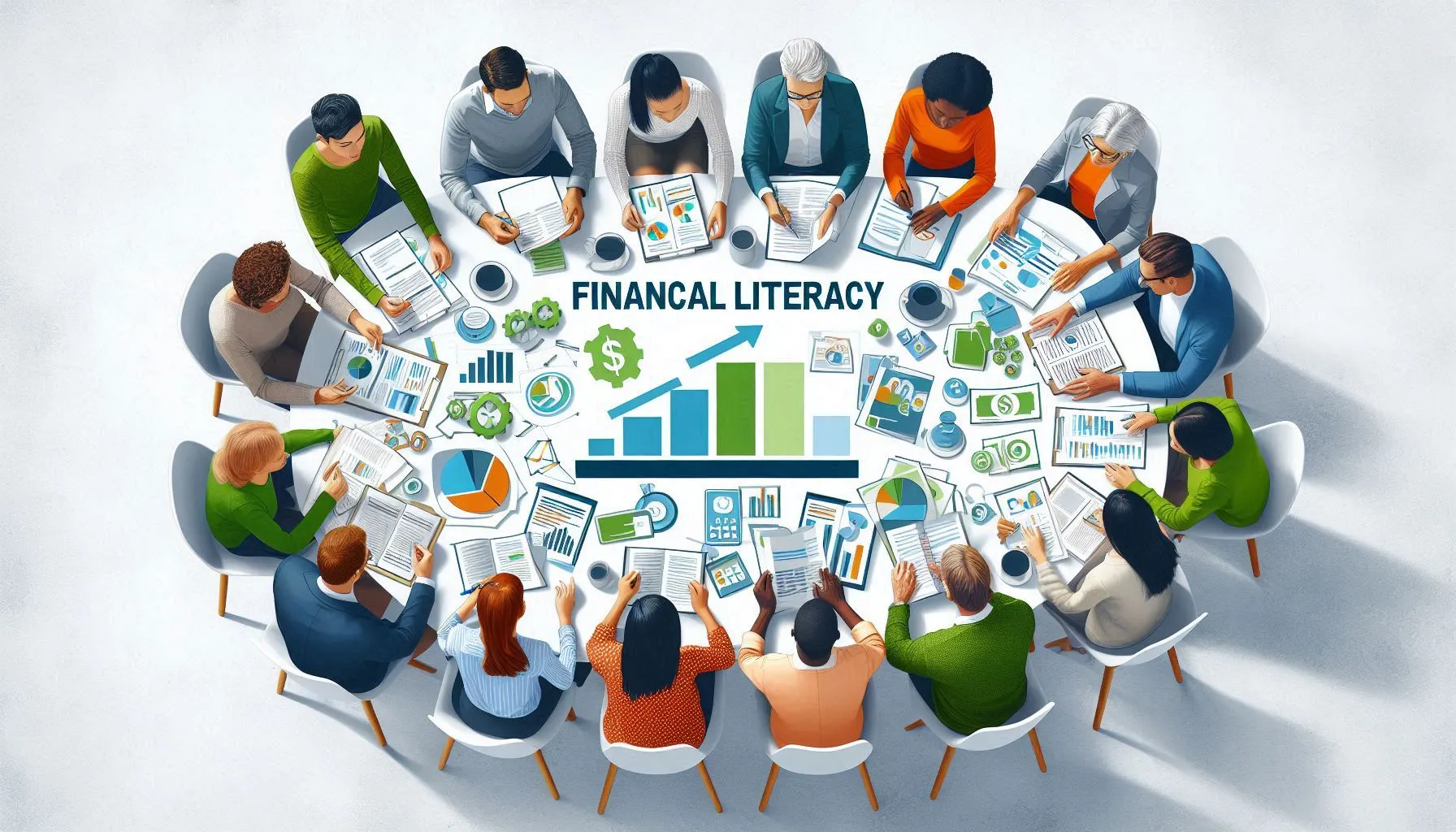Financial literacy is the ability to understand and effectively use various financial skills, including personal financial management, budgeting, and investing. It is essential for making informed decisions about saving, spending, and managing money. As the financial world becomes increasingly complex, the importance of financial literacy has never been more critical.
The Importance of Financial Literacy
Financial literacy is crucial for several reasons. It helps individuals make informed financial decisions, understand the implications of their choices, and manage their finances effectively. Understanding financial concepts enables people to avoid common pitfalls, such as excessive debt, poor credit scores, and inadequate savings.
Importance of Financial Literacy for Individuals
For individuals, financial literacy means having the knowledge and skills necessary to manage personal finances effectively. This includes budgeting, saving, investing, and understanding credit and debt. Financial literacy empowers individuals to achieve financial stability and independence, which leads to a better quality of life.
Fundamental Components of Financial Literacy
Budgeting

Budgeting is the process of creating a plan to spend your money. This plan, known as a budget, helps you prioritize your spending and ensure that you have enough money for the things that are most important to you. Budgeting can help you avoid debt and save for future goals.
Saving Plans

Saving is the act of setting aside money for future use. A saving plan can help you build an emergency fund, save for major purchases, or plan for retirement. Understanding different types of savings accounts and the interest they can earn is a crucial aspect of financial literacy.
Investments

Investing involves putting money into financial products or assets with the expectation of achieving a profit. Understanding investment options, risks, and returns is essential for building wealth over time. Common investment vehicles include stocks, bonds, mutual funds, and real estate.
Credit & Debt

Credit is the ability to borrow money with the promise to repay it in the future, while debt is the amount of money you owe. Understanding how credit works, including interest rates and credit scores, is crucial for maintaining financial health. Managing debt effectively is also a key aspect of financial literacy.
Insurance

Insurance is a way to protect yourself from financial loss. There are various types of insurance, including health, auto, home, and life insurance. Understanding the different types of insurance and how they work can help you choose the best coverage for your needs.
Tax Management

Tax management involves understanding the tax system and how to minimize your tax liability legally. This includes knowing about tax deductions, credits, and filing requirements. Effective tax management can help you keep more of your hard-earned money.
Check more about tax savings in How to Save Tax in ITR
Advantages of Financial Literacy
Being financially literate offers numerous advantages. It helps individuals manage their finances more effectively, avoid debt, save for the future, and achieve financial goals. Additionally, financially literate individuals are better prepared to handle financial emergencies and make informed investment decisions.
Where Can People Get More Information and Resources?
There are many resources available for individuals looking to improve their financial literacy. These include:
- Books and Online Courses: There are numerous books and online courses dedicated to personal finance and financial literacy.
Rich Dad Poor Dad is my personal favorite book - Financial Advisors: Professional financial advisors can provide personalized advice and guidance.
- Websites and Blogs: Websites like Us AarthikGyan offer valuable information and resources on various financial topics.
Government Resources: Many governments offer resources and programs to help individuals improve their financial literacy.
Conclusion
Financial literacy is a critical skill that empowers individuals to make informed financial decisions, manage their money effectively, and achieve their financial goals. By understanding and applying the fundamental components of financial literacy, such as budgeting, saving, investing, and managing credit and debt, individuals can build a solid financial foundation.
Stay tuned for future blog posts on topics like Banking, Saving Plans, Insurance, Credit & Debt, Investments, Tax Management, and Budgeting to deepen your understanding and enhance your financial literacy.
FAQ Section
The 5 principles of financial literacy are earning, saving and investing, spending, borrowing, and protecting. These principles guide individuals in making informed and effective financial decisions.
The three keys to financial literacy are knowledge, skills, and behavior. Understanding financial concepts, applying them effectively, and maintaining healthy financial habits are crucial for financial success.
Financial knowledge is important because it helps individuals make informed decisions, manage their money wisely, avoid debt, and achieve financial stability and independence.
The benefits of financial literacy include better money management, reduced financial stress, the ability to save and invest effectively, and the confidence to make informed financial decisions.
Basic financial literacy involves understanding everyday financial concepts like budgeting, saving, investing, credit, and debt. It provides the foundation for making informed financial choices.

Leave a Reply